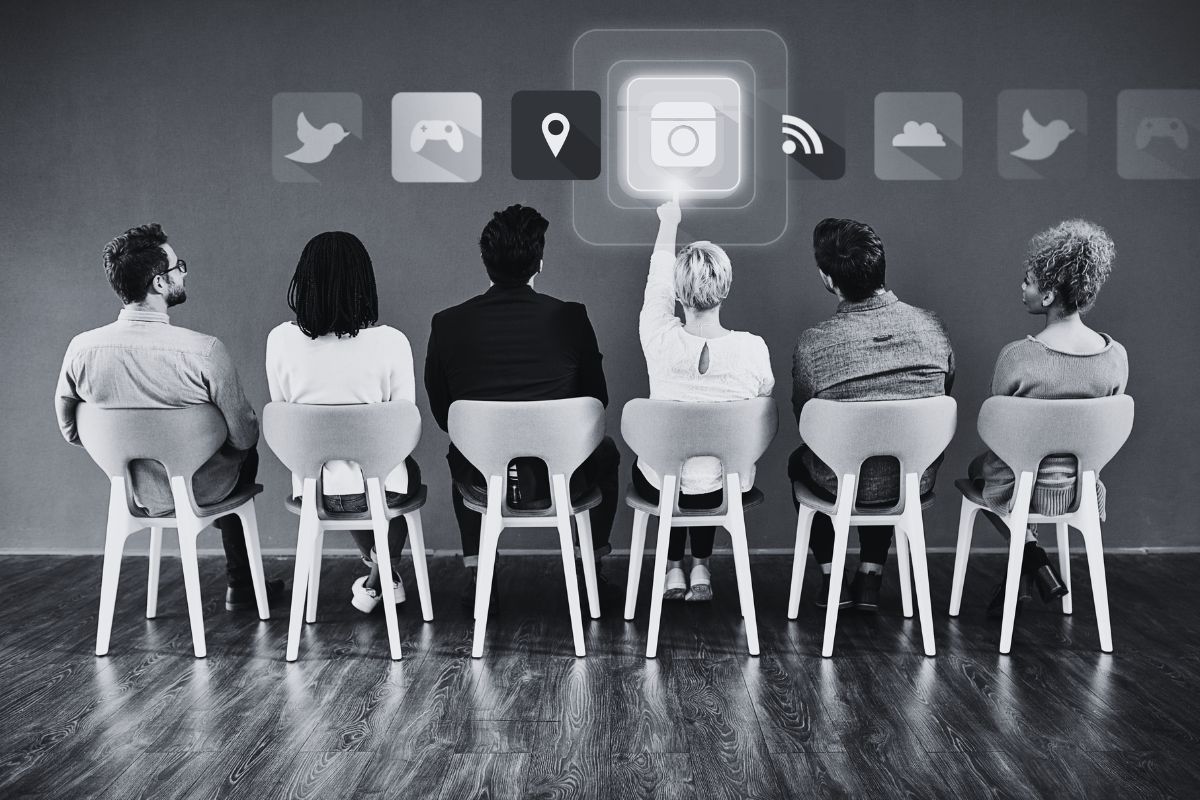Nichts verpassen & anmelden:
Written by AI
Level-Up or Game Over? Winning Tomorrow's Apprentices with Gaming!
Modern education faces numerous challenges, and the ways in which young people learn and interact are changing rapidly. Gaming is no longer just a hobby; it is increasingly seen as a valuable tool in education. In this article, we explore the role of gaming in education, how it enhances learning skills, and the opportunities it offers for the future of education.
The Importance of Gaming in Modern Education
Gaming has become an important part of contemporary culture and has therefore become an effective means of conveying knowledge and developing skills. Games promote active engagement with learning content and support the development of critical thinking skills.
Through interactive elements and playful learning, students and apprentices can be motivated to confront complex topics that might otherwise be perceived as boring or overwhelming.
The Role of Video Games in Professional Development
Video games make a significant contribution to professional development. They not only impart technical knowledge but also foster skills such as teamwork, problem-solving abilities, and strategic thinking. These competencies are crucial in today's workforce.
The variety of games allows apprentices to experience different scenarios and challenges that help them prepare for real-world professional situations. Simulations and role-playing enable learners to act in various roles and gain valuable experiences.
Another notable example is the use of serious games designed specifically for educational purposes. These games are designed to not only entertain but also achieve specific learning objectives. They can be used in fields like medicine, engineering, or even management to illustrate complex concepts and train practical skills.
How Gaming Enhances Learning Skills
Gaming can serve as an effective method for enhancing learning skills. Studies show that gamification – the incorporation of game-like elements into a non-gaming context – increases engagement and motivation. Learners who are stimulated by games often show improved information processing and retention rates.
Moreover, many games promote critical thinking as players must make strategic decisions. Such skills can be beneficial in many learning environments and help prepare students for the challenges of later professional life.
Furthermore, games can also promote social interactions, as many of them contain multiplayer elements that require teamwork and communication. This is particularly important at a time when remote work and virtual teams are becoming increasingly common. The ability to work effectively in a team and express oneself clearly is strengthened through such experiences and is invaluable in today's job market.
The Integration of Gaming into the Educational Program
Implementing gaming into educational programs requires careful planning and consideration. It is important to select appropriate games that are both educational and engaging for the target audience. The focus should not only be on the fun factor but also on the learning objectives.
Integration can take various forms, from using learning software to team-based games that promote exchange and collaboration. It is essential for educational institutions to have the technical capabilities and willingness to innovate.
The Benefits of Using Games in Education
Engagement: Games increase learner engagement, leading to a better learning atmosphere.
Interactive Learning Methods: Playful elements create an interactive environment that enhances the learning process.
Flexibility: Learning content can be adapted to different types of games and learning styles.
These advantages demonstrate that using games in education is not only desirable but necessary to optimally prepare upcoming generations.
Challenges in Implementing Gaming in Education
Despite the many benefits, there are also some challenges. A common issue is skepticism regarding the effectiveness of games in education. Teachers and trainers often need to be convinced that games are more than just a pastime.
Additionally, technical barriers and insufficient resources can hinder implementation. It is essential for schools and educational institutions to be ready to invest in the right technology and training to enable the integration of gaming.
Another aspect to consider is the selection of suitable games. Not all games are equal in terms of their educational benefits. It is crucial that the selected games are not only entertaining but also pursue clear learning objectives. Integrating gamification elements into traditional teaching methods can be an effective strategy to make learning content more interesting and enhance learners' motivation.
Furthermore, the role of teachers in this process should not be underestimated. They need to be trained to integrate the games effectively into their teaching and support learners in reflecting on their experiences. This requires close collaboration between developers of educational games and educational institutions to ensure that the games meet the specific needs of learners while also supporting curricula.
The Future of Education: Gaming
In the age of digitalization, gaming is likely to play an increasingly central role in education. Approaches may diversify further, and education may shift towards a more interactive and playful form of learning.
Students will increasingly have the opportunity to immerse themselves in different scenarios through virtual reality and augmented reality, making learning even more engaging and effective.
The Impact of Gaming on Future Education
The future of education with gaming will be characterized by an increasing personalization. Individual learning paths supported by gaming could help learners progress at their own pace while better addressing specific strengths and weaknesses.
Moreover, the networking of learners and experts through global gaming platforms opens new opportunities for knowledge exchange and professional development.
Gaming as a Key to Motivation and Engagement of Apprentices
For apprentices, it is crucial that they can identify with the learning material and are motivated to engage with it actively. Game-based learning methods are an excellent way to foster this motivation.
By educational institutions addressing the interests and habits of the younger generation, they can create an attractive and engaging learning environment that appeals to and retains tomorrow's apprentices.
Another aspect that supports the integration of gaming into education is the development of soft skills. Through cooperative games and team challenges, apprentices learn about the importance of communication, collaboration, and problem-solving skills. These abilities are not only relevant in an academic context but also in the future job market, where teamwork is often crucial for success.
Furthermore, the use of gamification elements, such as rewards and progress indicators, could make learning even more exciting. Apprentices could receive incentives for reaching certain goals or completing missions, motivating them to continuously learn and develop. This dynamic learning environment fosters not only engagement but also a long-term commitment to the educational process.
Conclusion: Gaming as a Tool to Attract Apprentices
Gaming plays a key role in recruiting and retaining apprentices. The ability to learn playfully can attract potential apprentices and increase the chances of attracting talented learners.
The integration of gaming into educational programs not only offers the prospect of a more engaging learning environment but also better prepares future professionals for the demands of the job market. A forward-thinking education should therefore seriously consider these innovative approaches.
The Role of Gaming in Recruiting and Retaining Apprentices
Modern companies are increasingly using gaming in their recruitment, for example through gamification of application tests or interactive assessment centers. This allows companies to get to know candidates better while making the application process more engaging.
Retention of apprentices can also be improved through the application of gaming elements. Successful training programs that use games show higher satisfaction and lower dropout rates.
Final Thoughts on the Importance of Gaming in Education
In summary, gaming is a powerful tool that can revolutionize both education and the recruitment of apprentices. In a world that is constantly evolving, it is crucial to find new ways to foster and motivate the next generation of professionals.
The integration of gaming into education offers the opportunity to spark learners' interest, enhance their skills, and optimally prepare them for a digitized future. The key to success lies in using these technologies wisely and strategically.
Another advantage of gaming in education is the opportunity to promote teamwork and social skills. Many games require collaboration, communication, and problem-solving abilities that are essential in today's workplace. By simulating real-life scenarios, apprentices can learn how to work effectively in groups and tackle challenges together. Such experiences can not only deepen learning but also strengthen apprentices' confidence in their abilities.
Furthermore, companies can also strengthen their employer brand by using gaming in education. Innovative and modern training approaches not only attract talented apprentices but also position the company as a forward-thinking employer. In a time when the skills shortage is a significant issue, this can represent a critical competitive advantage. The combination of fun and learning is increasingly perceived as a sign of an attractive work environment, which further facilitates the recruitment of highly qualified apprentices.








